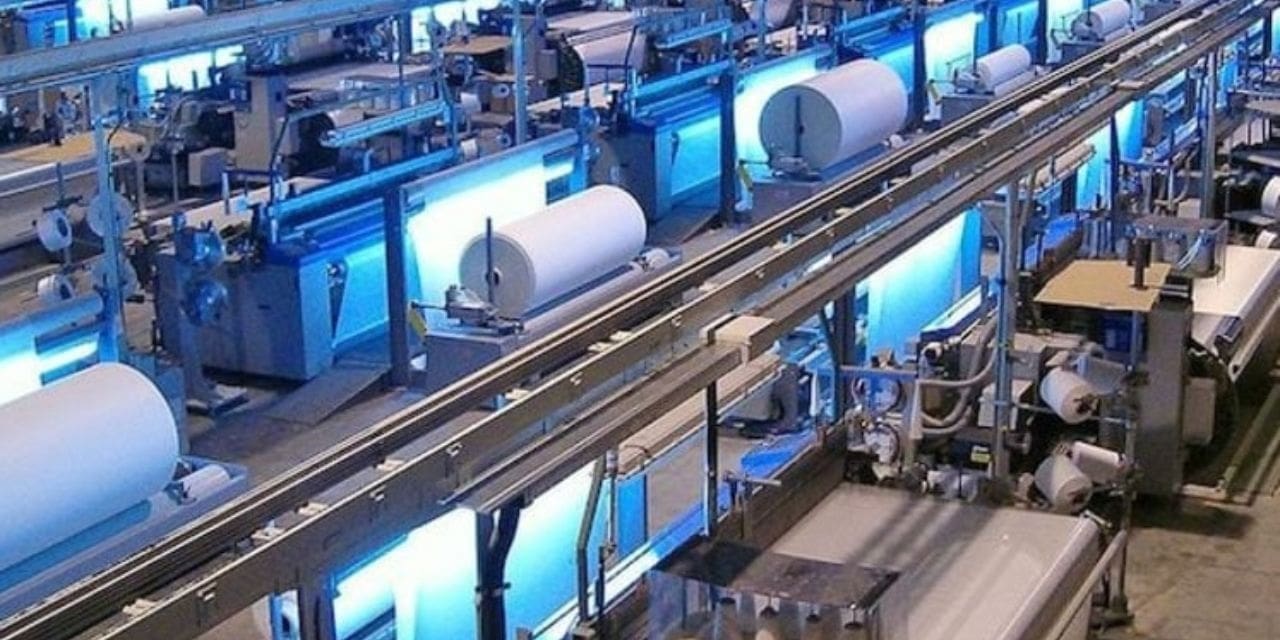The global textile machinery market boasts a valuation of US$ 29 billion in 2023, with a forecasted surge to US$ 52 billion by 2033, showcasing a notable compound annual growth rate (CAGR) of 6.1% during the ten-year projection period.
Textile machinery plays a pivotal role in transforming raw fibers into textiles, encompassing processes like knitting, weaving, crocheting, felting, tatting, braiding, and bonding. The machinery caters to diverse applications, ranging from quilting and lace making to textile finishing and spinning, serving wool mills, cotton mills, and garment factories in the production of various garments. The industry is witnessing a shift towards automated solutions, aiding manufacturers in enhancing product consistency, reducing manual labor, and crafting seamless garments with intricate embroidery.
The market’s robust growth is fueled by significant advancements in the apparel sector and a steady supply of raw materials such as jute and cotton. Additionally, the surge in demand for textile machinery is attributed to the fast-fashion trend, driven by the need for creating contemporary clothing featuring unique fabrics, patterns, designs, colors, and styles. The rise in popularity of high-end apparel, propelled by increased urbanization, rising disposable incomes, and the influential role of social media, further contributes to this momentum.
Environmental concerns and a heightened awareness of the adverse effects of waste incineration are propelling the demand for textile recycling, thereby expanding the market. Key players are responding to this trend by introducing medical textile machines designed to offer modular and configurable solutions, meeting customer needs. This development aligns with the growing utilization of medical textiles for various applications, including first aid, surgical, clinical, and hygienic purposes, contributing to further market expansion.
Key Highlights from the Market Study:
- The global textile machinery market is valued at US$ 29 billion in 2023.
- Projections indicate a valuation of US$ 52 billion by 2033.
- Anticipated CAGR of 6.1% for textile machinery demand from 2023 to 2033.
- Asia Pacific dominates with a 64% share in the worldwide textile machinery market as of 2022.
- Sales of spinning machines expected to grow at a CAGR of 4.6% from 2023 to 2033.
According to a Fact.MR analyst, “The global textile machinery market is poised to benefit from the ongoing evolution in the textile and apparel industry, with a notable demand surge for spinning machines from both developing and developed nations, driving market expansion.”
The textile equipment market in North America is on the rise, fueled by growing demand from the textile and clothing sectors.
Leading the North American market, the United States is actively contributing to market expansion through increased export initiatives. The country’s vibrant apparel industry is a key driver, creating a heightened demand for specialized machines for production. Additionally, the growth in population and disposable income within the United States plays a crucial role in supporting and sustaining market growth.
Competitive Landscape
Prominent textile machine manufacturers are actively pursuing strategic initiatives to enhance their global presence through investments, collaborations, technological advancements, research and development (R&D) activities, and acquisitions.
In April 2021, Ingersoll Machine Tools commenced the construction of a 40,000-square-foot extension for building the Giant Magellan Telescope structure. This expansion, featuring the installation of an Ingersoll MasterMillTM, establishes one of the largest milling centers in the United States, catering to the production needs of the United States Defense Department.
Sharabati Denim, a leading manufacturer of eco-friendly denim in Turkey, Egypt, and Syria, introduced the innovative recycling program “Tadweer” in April 2021. This program utilizes recycled materials and sustainable manufacturing technologies, contributing to a closed-loop system. Trützschler Card Clothing (TCC) has played a pivotal role in supporting and supplying expertise and equipment for this groundbreaking initiative.
In August 2021, Saurer Intelligent Technology Co. Ltd (listed in Shanghai, China) and Rieter Holding AG (Winterthur, Switzerland) finalized a deal, with Rieter acquiring the Temco and Accotex businesses from Saurer Technologies GmbH & Co. KG and the Autoconer machine business from Saurer Spinning Solutions GmbH & Co. KG for EUR 300 million.
Morgan Tecnica’s PLY1, a single-ply cutting system based in Italy and part of the ATE Group, was designed to meet industrial standards in January 2022. Featuring various cutting heads capable of handling hard and soft textile materials, PLY1 accommodates textiles of diverse compositions, including carpet fabric and special materials with dimensions and thicknesses up to 60 mm, delivering remarkable speed and precision.
In January 2021, Mayer Braidtech, a wholly-owned subsidiary of Mayer & Cie, formalized its partnership with Mayer & Cie. This collaboration solidified the incorporation of Mayer Braidtech GmbH at its Albstadt headquarters, further strengthening the capabilities of the circular knitting machine manufacturer.
Key Companies Profiled
Key suppliers of textile machinery around the world include A.T.E. Enterprises Private Limited, Savio Macchine Tessili S.p.A, Murata Machinery Ltd, Mayer & Cie GmbH & Co. KG, Batliboi Ltd, Benninger AG, Itema S.p.A, Kirloskar Toyoda Textile Machinery Pvt. Ltd, Picanol Group, Lakshmi Machine Works Ltd, Navis TubeTe, Saurer AG etc.

